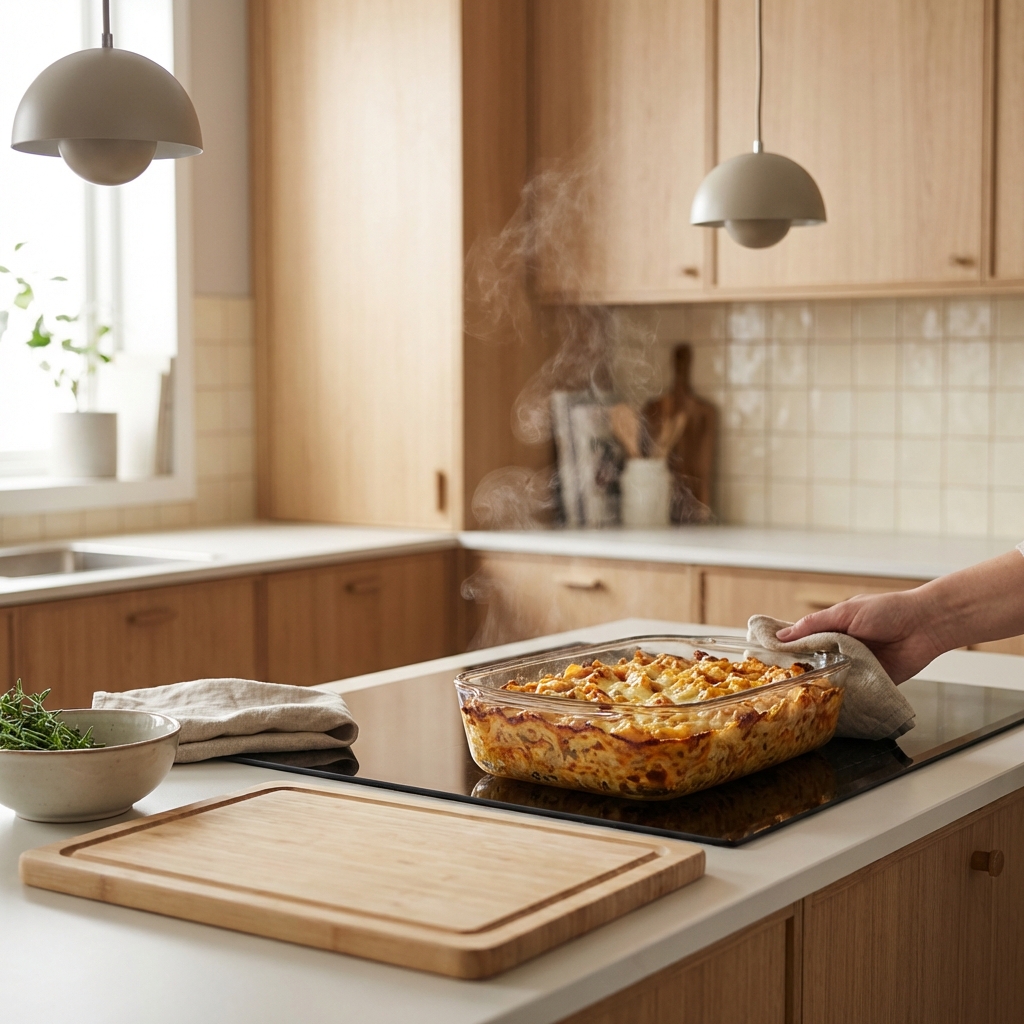Foods to Avoid During Pregnancy: Safer Alternatives You’ll Love

Is this safe to eat? 🥑
Scan any meal to instant pregnancy safety checks and nutrition insights.
Why Food Safety Matters During Pregnancy
Pregnancy changes the immune system, metabolism, and digestive function in ways that can increase susceptibility to foodborne illness. Pathogens like Listeria monocytogenes, Toxoplasma gondii, Salmonella, and E. coli can cause more severe illness in pregnant individuals and, in some cases, harm the developing baby. A practical, evidence-based approach helps you enjoy a wide variety of foods while minimizing risk.
This guide summarizes the major foods to avoid, explains why they are risky, and provides safer alternatives and smart kitchen habits. It is based on widely referenced guidance from obstetric and public health organizations. Always discuss personal questions with your healthcare provider.
Foods to Avoid
High-Mercury Fish
Mercury is a neurotoxin that accumulates in predatory fish. High levels can affect fetal brain and nervous system development. Avoid species known to be high in mercury:
- Shark, swordfish, king mackerel, tilefish
- Bigeye tuna (often used in certain sushi preparations)
- Marlin and orange roughy
Safer, low-mercury choices include salmon, trout, anchovies, sardines, pollock, and cod. These provide DHA and EPA, beneficial for fetal brain development.
Raw or Undercooked Seafood
Raw or undercooked seafood—including oysters, clams, mussels, ceviche, and sashimi—can carry parasites and bacteria. Cooking to a safe internal temperature reduces these risks.
- Choose cooked rolls like tempura shrimp, eel (cooked), or California rolls
- Opt for vegetarian rolls (avocado, cucumber, asparagus) and sides like edamame and miso soup
Undercooked Meats and Eggs
Undercooked meat and eggs can harbor Salmonella, E. coli, and other pathogens. Use a thermometer and aim for safe internal temperatures.
- Poultry: 165°F (74°C)
- Ground meats: 160°F (71°C)
- Beef, pork, lamb steaks/roasts/chops: 145°F (63°C) with a 3‑minute rest
Eggs should be fully cooked (no runny yolks). Consider pasteurized eggs for recipes that traditionally use raw egg (like certain dressings or desserts).
Unpasteurized Dairy
Raw milk and soft cheeses not made with pasteurized milk can carry Listeria. Check labels carefully; enjoy soft cheeses like mozzarella, cream cheese, cottage cheese, and pasteurized versions of brie or feta.
Deli Meats and Pâtés
Ready-to-eat deli meats, hot dogs, pâtés, and refrigerated meat spreads can carry Listeria. Heating until steaming hot reduces risk.
Refrigerated Smoked Fish
Refrigerated smoked fish (lox) can carry Listeria. Canned or shelf-stable smoked fish is safer. Cooked smoked fish in a hot dish is also lower risk.
Raw Sprouts
Raw sprouts (alfalfa, clover, radish, mung bean) can be contaminated at the seed stage and are difficult to wash safely. Avoid raw sprouts; cook thoroughly if you choose to eat them.
Unwashed Produce
Thoroughly wash raw fruits and vegetables under running water—even if you plan to peel them—to reduce soil and potential contaminants like Toxoplasma.
Alcohol
No amount of alcohol is considered safe during pregnancy. Choose non‑alcoholic options and mocktails made with pasteurized juices and fresh ingredients.
Herbal Supplements and Certain Teas
Some herbs and concentrated supplements are not well studied in pregnancy. Consult your healthcare provider before consuming herbal products. Moderation with common teas is usually advised; see caffeine guidance below.
Safer Alternatives and Smart Swaps
- Low‑mercury fish: salmon, trout, anchovies, sardines, pollock, cod
- Cooked sushi‑style options and vegetarian rolls
- Fully cooked eggs: omelets, hard‑boiled, scrambled
- Pasteurized dairy: cheddar, mozzarella, cottage cheese, cream cheese, pasteurized brie
- Hot sandwiches: heat deli meats until steaming
- Whole fruits and vegetables: washed thoroughly, peeled if desired
Balance your plate with protein, complex carbohydrates, healthy fats, and plenty of fiber. Hydrate generously and aim for variety across the week.
Kitchen Hygiene and Storage
Reduce cross‑contamination and keep foods out of the temperature danger zone.
- Use separate cutting boards for raw meats and produce
- Wash hands with soap for at least 20 seconds before food prep
- Store leftovers promptly in shallow containers; refrigerate within 2 hours
- Keep your refrigerator at 40°F (4°C) or below; freezer at 0°F (‑18°C)
- When reheating leftovers, bring them to 165°F (74°C)
Dining Out: Practical Tips
- Choose reputable places with strong hygiene practices
- Ask for pasteurized dairy and thoroughly cooked proteins
- Avoid raw menu items including tartare, sashimi, and house‑made raw‑egg sauces
- Request separate prep to minimize cross‑contamination
Reading Labels and Shopping Smart
- Look for “pasteurized” on dairy
- Check fish species and origin; prefer low‑mercury options
- Select pre‑washed greens from reputable brands and still rinse under cold water
- Choose ready‑to‑eat items with clear storage and heating instructions
Moderation Topics
Caffeine intake is commonly limited to around 200 mg per day in pregnancy. Be mindful of coffee, tea, soft drinks, energy drinks, and chocolate. See detailed guidance in Caffeine During Pregnancy: How Much Is Safe?.
A Sample Safe Day of Eating
- Breakfast: Oatmeal with pasteurized yogurt, berries (washed), and walnuts
- Snack: Apple slices with peanut butter
- Lunch: Salmon salad (cooked salmon) with mixed greens, avocado, vinaigrette
- Snack: Cottage cheese with pineapple
- Dinner: Stir‑fried chicken and vegetables served over brown rice
- Dessert: Baked fruit with cinnamon and a dollop of cream cheese spread
When in Doubt
If you’re unsure about a specific item, err on the side of caution. Use tools that help you evaluate risk in real time before you eat.
Make Food Safety Easy
Snap a photo of your meal to get instant safety checks and tailored nutrition tips for your trimester. Identify risky ingredients and see safer swaps before you take a bite.
Download PregnancyPlate for confident meal choices every day.
Read next: Is Sushi Safe During Pregnancy? and Caffeine During Pregnancy: How Much Is Safe?.
Want to track your meals and check food safety instantly? Try PregnancyPlate — trusted by 50,000+ expecting mothers.



